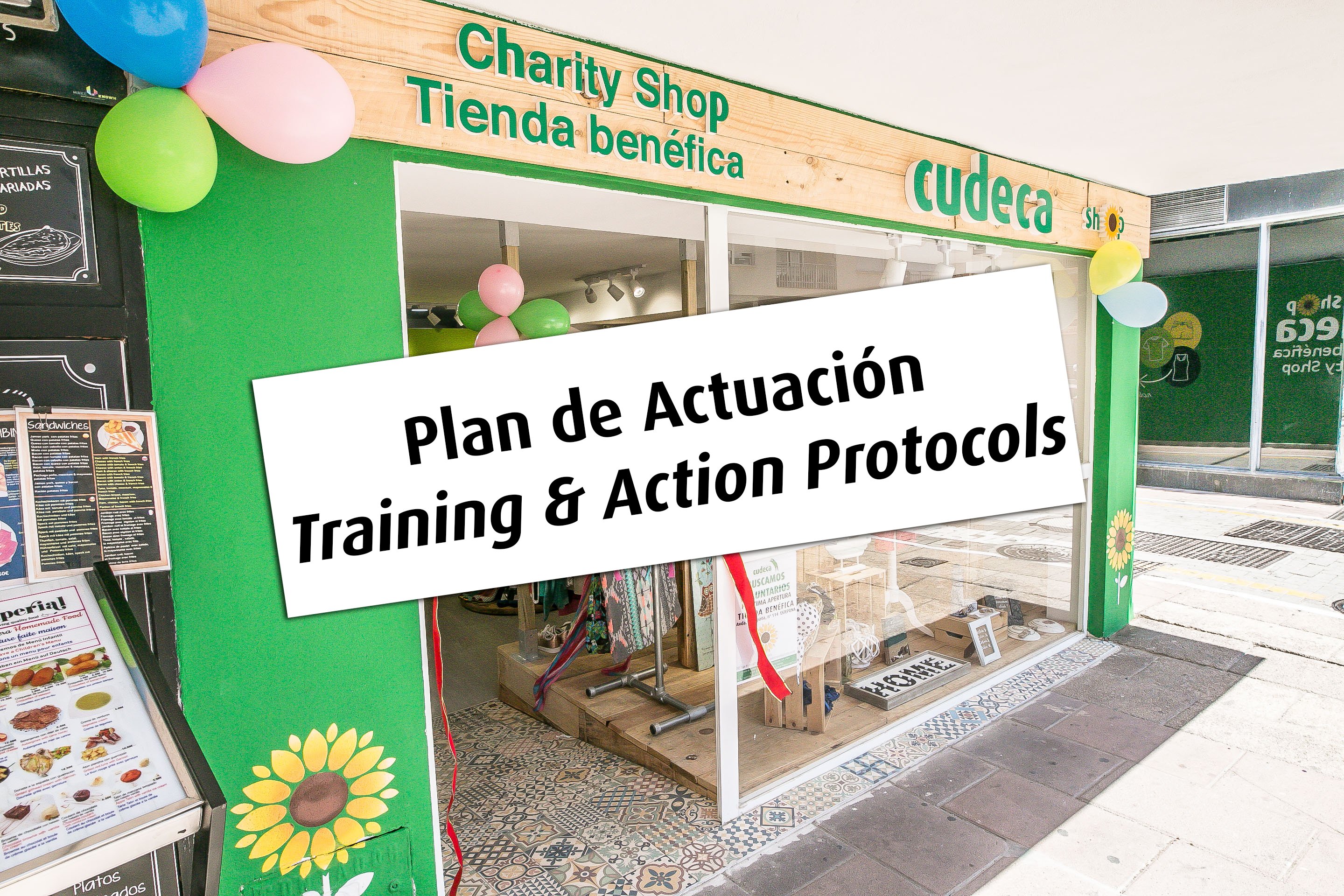Training & Action Protocols for Cudeca Shops
Cudeca Hospice Foundation is working as quickly as possible to reopen its network of charity shops, while following all the recommendations of the health authorities.
Training and Action Protocols for shop teams and volunteers
We are acquiring point-of-sale screens, individual face shields, face masks, hand sanitiser, gloves and other disinfectants so they will be in all shops before reopening. Each team member and each volunteer will receive training about action protocols, hygiene measures and controlling the maximum capacity, as well as the procedures to follow regarding accepting clothing and other donations.
Processing the garments with maximum sanitary guarantees
The probability of transmission of the virus through used clothing is, in the worst case, minimal, and no greater than that of new clothing.
The virus can survive on textiles no longer than 48 hours, according to the New England Journal of Medicine. Therefore, we will establish a system of marking and quarantining donations of clothes in closed bags for 72 hours, exceeding the estimated survival times of the virus.
In addition, each garment will be steamed at 100 degrees for one minute, enough time to destroy the virus, according to the School of Medicine of the University of Hong Kong.
The Federal Institute of Risk Assessment in Germany (BfR), based on the virus’ capacity for transmission, determines its relative low capacity for environmental stability - that is, it survives by repeatedly changing its environment - making it highly unlikely that textiles or footwear are a source of virus infection.
Customer service in our charity shops
The management of Cudeca charity shops is currently deciding which shops will be able to open, as well as their opening times, in order to provide maximum hygiene guarantees. To that end, shop capacity will be limited, social distancing and fluid circulation to avoid crowding will be encouraged, changing rooms will be limited and disinfected after each use, and clients will be encouraged to pay by credit card.
Garments that customers try on but choose not to purchase will be quarantined for 72 hours and disinfected before again becoming available for purchase. Customers will always have information on the measures taken through signage in the shop.




